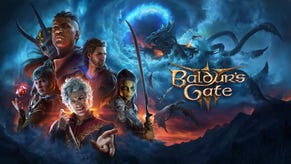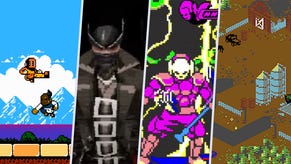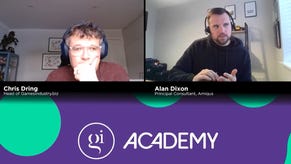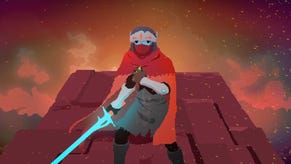Phoenix Point crowdfunding breaks $2 million -- here's how it was done
Snapshot Games explains how $250,000 on advertising drove almost $1.2 million in revenue
Back in June 2017, Phoenix Point raised $938,077 on Fig.
Phoenix Point was a new strategy title from Snapshot Games, the developer operated by XCOM creator Julian Gollop, so it was off to a good start. When it launched on Fig, it did so with an initial target of $500,000.
Since the end of the campaign, however, Snapshot Games has managed to secure more than $1.2 million in revenue from consumers wanting to pre-purchase Phoenix Point. In total, it has now secured $2,154,262 from crowdfunding.
This is how Snapshot Games did it.
Snapshot Games is no stranger to crowdfunding. In 2014 it ran a Kickstarter campaign for Chaos Reborn, an update of a 1985 Julian Gollop title. The game surpassed its target by $30,000, it was in Early Access within six months and was available a year later. It was well received, too. In other words, it was a crowdfunding campaign where backers got what they wanted and within a reasonable time-frame.

Yet Snapshot Games decided not to use Kickstarter when looking to fund XCOM-alike Phoenix Point, and chose Fig instead.
Fig campaigns combine typical Kickstarter-style crowdfunding (called 'rewards funding', whereby people fund the project in exchange for the game and other add-ons) with investment funding. The latter requires that the money is paid back with interest, although there is a cap on how much needs paying back, and Snapshot limited the investment funding it would accept.
"Who knows how it would have done on Kickstarter, but there were a few things that we liked about Fig," explains David Kaye, co-founder at Snapshot Games. "Fig made the argument that we would raise more by having the investment component and certainly there was a lot of demand around that.
"The second thing was that we liked that it was a curated platform. It was going to be the only live campaign on the site at that stage. And also, frankly, we weren't feeling great about Kickstarter. It felt like video games had been in decline on there for a while.
"Kickstarter is a big platform and it's pretty agnostic, whereas Fig is trying to build a new platform and make it more successful, so it was a lot more hands-on. It did things, it loaned us its PR agency for the duration of the campaign, and it did some online advertising. A whole bunch of stuff."
In the end, Phoenix Point raised $484,000 from investment funding and $454,077 from rewards funding.
"You start selling your game when you first have the idea, then you keep selling it while you're making it, and then you are selling it while you're updating... there's no end to it"
Once the Fig campaign was completed, Snapshot Games used crowdfunding pledge manager CrowdOX for those that missed the original campaign; this ran for a brief period raising $18,995. It then crated an Xsolla direct-to-consumer store where it allowed fans to pre-purchase the game and become backers this way.
"We set up the store a couple of months after the end of the campaign," Kaye explains. "We weren't really seeing that much revenue from it until September. Julian was making an appearance at EGX so we did a 20 per cent discount code - EGX20 - and that was the first time that we tried doing some proper advertising. We saw a big uplift very quickly."
The promotion was done via Facebook, and over the course of the EGX week Snapshot Games received over $27,000 from the promotion.
"Marketing is incredibly important," Kaye stresses. "You start selling your game when you first have the idea for it, then you keep selling it while you're making it, and then you are selling it while you're updating it... there's no end to it. It was never in my head that we would finish the campaign and that would be it.
"Self-publishing and not having a publisher is not the same thing. I think some developers understand that better than others. In the digital age, distribution is a lot easier for developers to do themselves, but distribution isn't the same as marketing. You need to make people aware of the game, get them interested, and then actually get the sale. That's the piece that I'm mildly obsessed with. That is what has driven me to do a bunch of stuff that was, maybe, a bit unusual. But not unheard of."
The initial EGX spike resulted in Snapshot Games increasing its Facebook spend over the following months, but it wasn't working. Indeed, the entirety of October only just beat what the firm did in that one week in September, and sales declined in November and December.
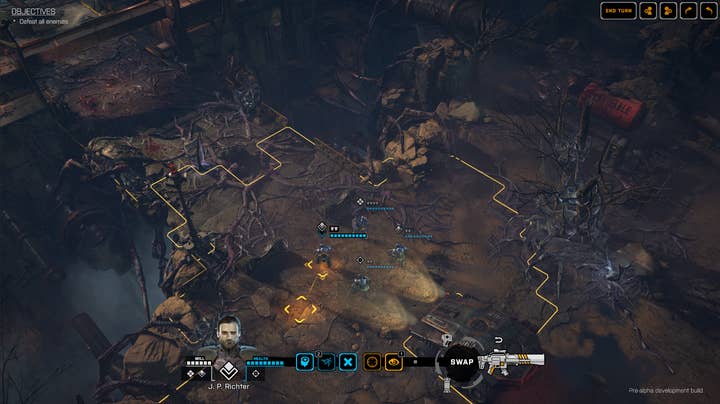
"There was a point where we were close to giving up," Kaye admits. "We weren't losing money, but for the amount of effort we were putting in, the amount of testing we had to do, we were not seeing a great return. I think some people internally were wondering, 'David, why are you wasting all this time on advertising?'
"The turning point was January this year. It seems obvious now, but Q4 is the most expensive time to advertise, and January is the opposite. January was our first $100,000 month. We're better capitalised now, but to begin with we didn't have a lot of money so our marketing had to be profitable very quickly. That drop in CPMs you get from December to January is so big that suddenly a bunch of stuff that was only marginally working was suddenly really working and we were able to scale it quickly."
The advertising wasn't all about generating money, either. Snapshot Games has plans to turn Phoenix Point into a franchise, and wanted to build the brand.
"We think there'll be a bit of cannibalisation with Game Pass subscribers and those who would have bought the game, but that will be outweighed by the exposure"
"The game is still pretty early," Kaye acknowledges. "Most people are not going to buy the game at this point. They'll get it when it's ready.
"We're building awareness for the game in a way that is not entirely measurable. We know how many people have seen a trailer, which now I think is a couple of million people. When we started the Fig campaign we had 5,000 people on our mailing list. As of today, a year later, we have 65,000 people. And that's growing roughly 10 per cent a month. It's as much about building the awareness as it is generating revenue."
Building that audience is part of the reason the firm teamed up with Xbox to get Phoenix Point on the Game Pass subscription service.
"We think that maybe there will be a bit of cannibalisation between Game Pass subscribers and those who would have bought the base game, but I think that will be outweighed by the exposure we're going to get to potentially millions of players," Kaye states. "And a proportion of them, I am sure, we can turn into customers in other ways."
Last month Phoenix Point's Xsolla store took just shy of $200,000 - its second biggest month on record - and pushed the firm's total direct sales to just a few dollars shy of $1.2 million. Over 20,000 customers have bought the game this way (at over $50 each), which is double the number of Fig backers. In total, Snapshot Games has spent around $250,000 on marketing, primarily on events and social media.
"Occasionally we get people saying on Facebook 'stop wasting this money on advertising and just work on the game', but it's not wasted and, trust me, you don't want to let me anywhere near the code," laughs Kaye.
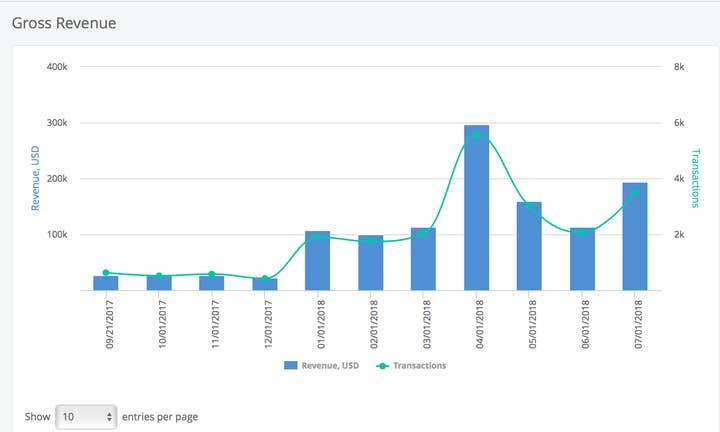
There's clearly a lot riding on Phoenix Point. It has raised a lot of money and has secured some big name investors (not all of which it can talk about) and they will all want a return at some point.
The game's expectations have therefore increased. This is a title made by a 30-person independent team, and it'll be inevitably compared to 2K's recent XCOM games. Kaye has dedicated his time to ensuring the money keeps coming in so that Snapshot can reach the necessary quality bar, and his love of strategy games has helped him in his testing.
"The challenge with marketing is that it is really easy to spend $10 and make a profit, but it's harder to do that with $100," Kaye says. "But we figured out some ways to scale our marketing in a sustainable way. This marketing stuff is a lot of work. It's slightly absurd the amount of energy we've put into it. The reason we've preserved so long, even when it wasn't working, is because running online advertising these days is a bit like playing a strategy game. It's probably my most played strategy game of the year after Clash Royale."
"Self-publishing and not having a publisher is not the same thing"
He concludes: "I don't know if there's a cultural bias against marketing in the indie space, but there is so much content now. There are so many things competing for attention that if you don't have someone spending a significant proportion of time thinking about how to get people excited about your game, then you could find yourself in trouble.
"The flip side of this very crowded environment is that there are more ways than ever to find an interested audience and share stuff with them. We put a lot of effort into social, principally Facebook but also YouTube and Twitter. We have had a community manager on-board since the Fig campaign ended. If I was going to do a crowd-funding campaign now, I would have them on-board way before the campaign was launched.
"Email is also an incredibly powerful channel for us. About 5 per cent of our sales are directly attributed to email - the actual number is probably higher, because it only tracks direct clickthroughs.
"Of course, we've had advantages with things like Julian, which creates some built-in interest. And none of this stuff works if you don't have a game that people are interested in. But if you're making a game and selling it without a publisher, then you're running a publishing business. Your job isn't just making a game, it is also getting it in front of people."
Fig will be among the speakers at the GamesIndustry.biz Investment Summit, held in the UK on September 20th. Click here for more.
Disclosure: EGX is put on each year by GamesIndustry.biz parent Gamer Network.

